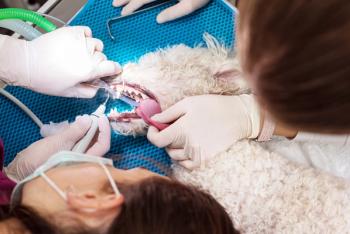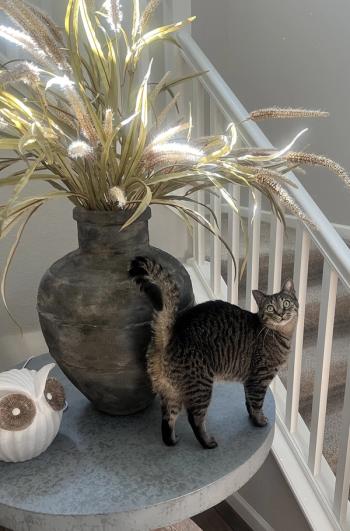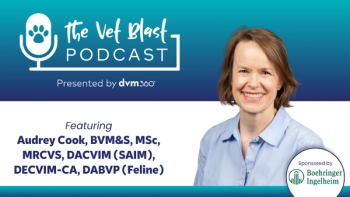
Scientists find gene mutation for feline HCM
Baltimore — Researchers report they have discovered the genetic mutation responsible for hypertrophic cardiomyopathy (HCM) — the most common disease in cats.
BALTIMORE — Researchers report they have discovered the genetic mutation responsible for hypertrophic cardiomyopathy (HCM) — the most common disease in cats.
At presstime, Dr. Mark Kittleson, a cardiologist at the University of California-Davis School of Veterinary Medicine, unveiled his findings at the American College of Veterinary Internal Medicine's annual convention in Baltimore.
According to his report, a missense mutation in the cardiac myosin binding protein C gene (cMyBP-C) was identified in a colony of Maine Coon cats. The spontaneous sarcomeric mutation changes a conserved amino acid resulting in the alteration of and reduction in cMyBP-C. As a breed, Maine Coons are known to host familial HCM, which is passed on as an autosomal dominate trait and usually develops during mid-life, Kittleson says.
"There is no cure for cats suffering with hypertrophic cardiomyopathy; they often go into heart failure," he says. "That's why we've been very anxious to try and find the mutation responsible for this disease. The goal is to be able to set up a screening test so breeders can look for it."
Kittleson works on the project with Dr. Kathryn Meurs of The Ohio State University. Meurs, who performed the benchwork on the genes, could not be reached by presstime for comment.
About HCM
Cats suffering from HCM often die suddenly because disease symptoms usually are subtle and can go undetected. HCM is a heart muscle disease that develops insidiously over time, Kittleson says. Its main feature is an excessive thickening of the muscular walls of the left ventricle and internal papillary muscles without an obvious cause.
HCM causes heart failure, systemic thromboembolism and sudden death. The disease alters the structures of the heart and impairs its function in a variety of ways, he adds.
Treatment options often include prescription drugs, such as beta blockers and calcium channel blockers, to alleviate the signs of heart failure.
On the horizon
While Kittleson and his colleagues research felines, human medical professionals have been studying HCM for years. Like cats, people suffering with the life-threatening disease are prone to sudden death. Scientists since have discovered roughly 150 genetic mutations of a number of different genes responsible for the disease's human variation, Kittleson says.
"This is the first mutation we've found, and it's probably not the only one. That would be too easy," Kittleson says. "But it's a foundation. We have hopes there might be other breeds that have the same mutation."
While it's estimated one in 500 people have HCM, the percentage of cats with the disease is unknown. UC-Davis performs screening clinics that show low incidence rates, Kittleson says.
"We can go through 30 cats in a day and see nothing," he says. "Then we might see several. It's inherited in cats the same way it's inherited in people. As in human medicine, you never know what to expect."
Newsletter
From exam room tips to practice management insights, get trusted veterinary news delivered straight to your inbox—subscribe to dvm360.





